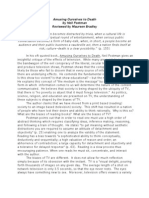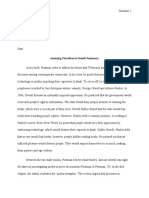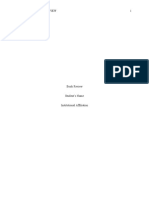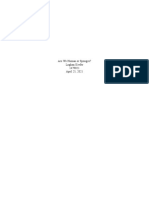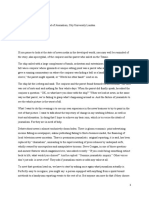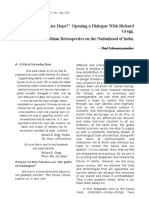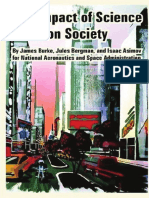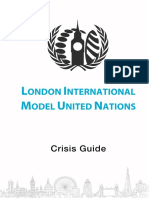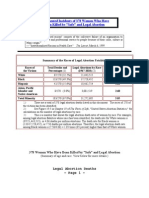0% found this document useful (0 votes)
134 views6 pagesNeil Postman
Neil Postman's book, Amusing Ourselves to Death, critiques the impact of modern communication technologies on public discourse and culture, emphasizing that entertainment has become central to American life. He argues that the medium through which information is conveyed shapes our understanding and epistemology, leading to a decline in the quality of news and education. While Postman highlights the issues caused by this shift, he does not provide solutions, leaving readers to grapple with the challenges of navigating a media-saturated society.
Uploaded by
hassanraza91184Copyright
© © All Rights Reserved
We take content rights seriously. If you suspect this is your content, claim it here.
Available Formats
Download as RTF, PDF, TXT or read online on Scribd
0% found this document useful (0 votes)
134 views6 pagesNeil Postman
Neil Postman's book, Amusing Ourselves to Death, critiques the impact of modern communication technologies on public discourse and culture, emphasizing that entertainment has become central to American life. He argues that the medium through which information is conveyed shapes our understanding and epistemology, leading to a decline in the quality of news and education. While Postman highlights the issues caused by this shift, he does not provide solutions, leaving readers to grapple with the challenges of navigating a media-saturated society.
Uploaded by
hassanraza91184Copyright
© © All Rights Reserved
We take content rights seriously. If you suspect this is your content, claim it here.
Available Formats
Download as RTF, PDF, TXT or read online on Scribd
/ 6

